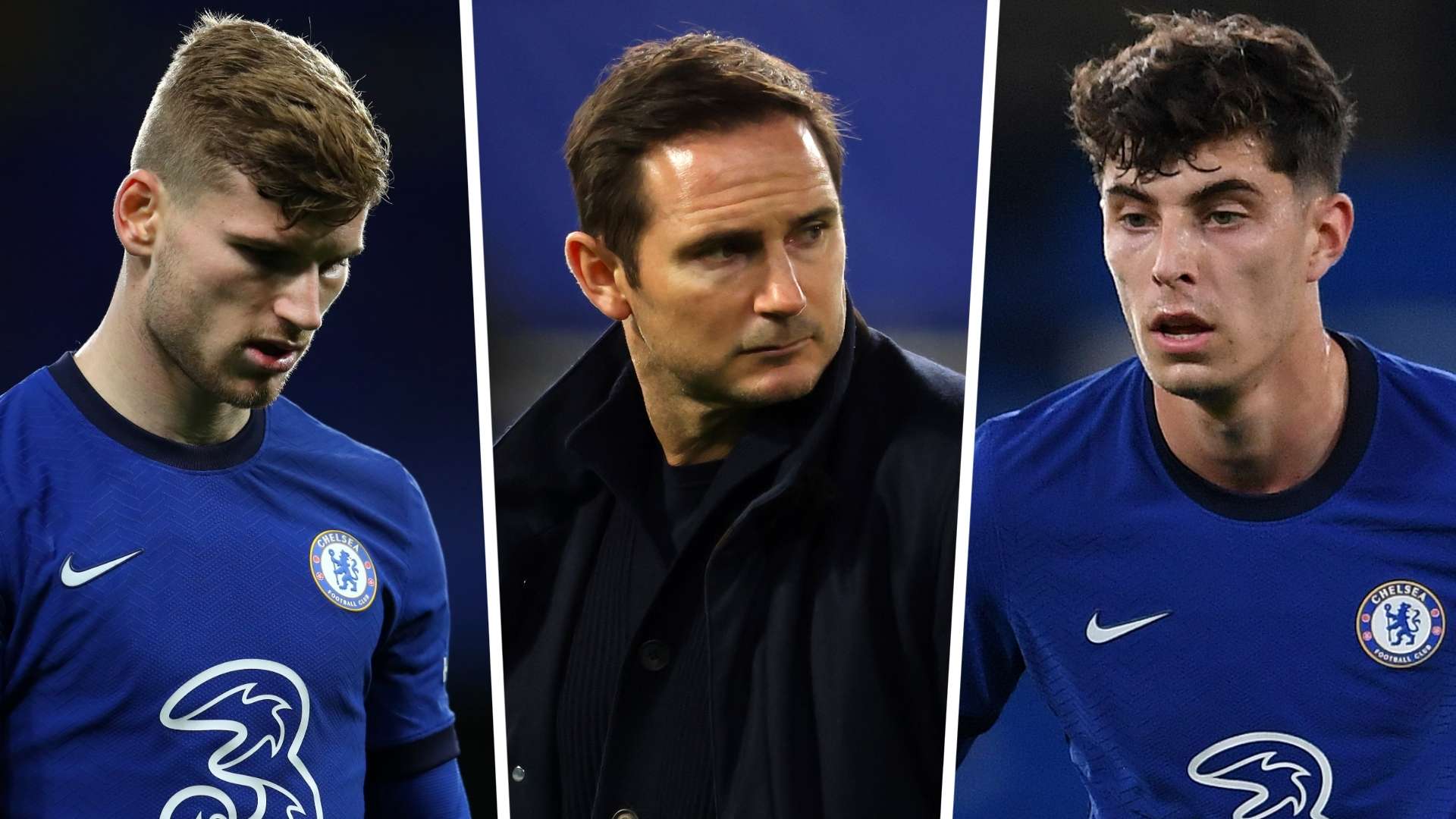As Frank Lampard continues to come under increasing scrutiny, the Chelsea boss has a crucial tactical decision to make that could hold the key to him saving his job.
The form of big-money summer signings Timo Werner and Kai Havertz has been a major factor in the Blues' recent downturn in form, though Lampard must take some of the blame having struggled to find a formation that will get the best out of both of his Germany internationals, as well as the other high-profile members of his squad.
Despite the recent good form of Olivier Giroud, Tammy Abraham and Callum Hudson-Odoi, Lampard is keen to build his team around Werner and Havertz, and as such figuring out a system to suit them remains his main priority.
He will have to do so quickly, with a run of just one win in six games having seen the Stamford Bridge outfit slide down the table.
Chelsea now sit ninth in the Premier League, 10 points behind leaders Manchester United, and having spent in excess of £220 million ($250m) during the summer transfer window, a title challenge is expected out of the Blues this term.
Next Match
While there are other issues for Lampard to deal with - namely discontent behind-the-scenes, which Goal understands is currently limited to fringe players - getting results on the pitch while his expensive new arrivals lead the way will ultimately be what saves him from the sack.
So what are Lampard's options, and which should he opt for against Fulham on Saturday if he does indeed opt to play both Werner and Havertz from the start?
Option one: 4-3-3
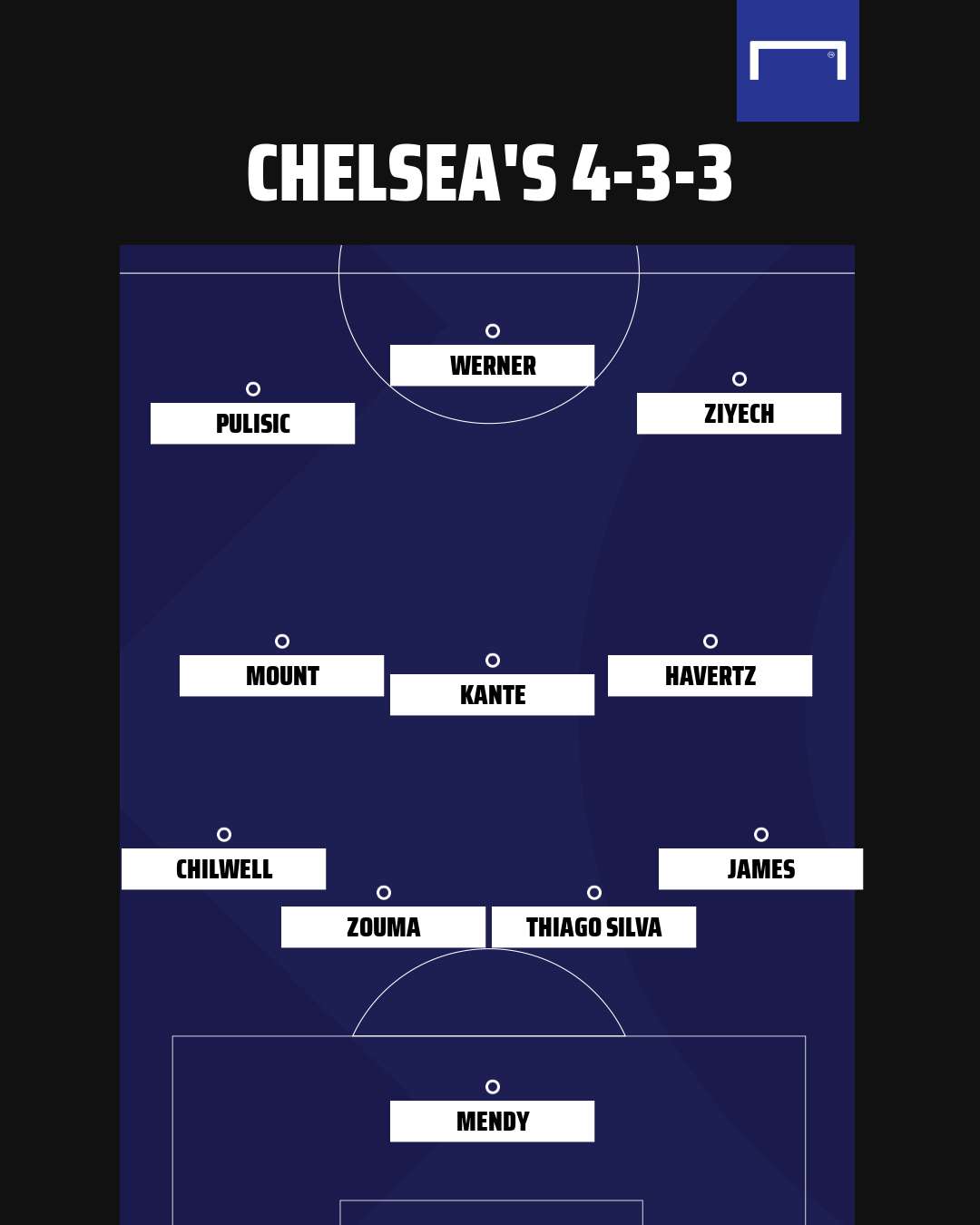 Goal
Goal
So far this season, Lampard has stuck with the 4-3-3 formation that formed the backbone of their 16-match unbeaten run through the autumn in the hope that it will help bring about a return to winning ways.
"[Playing] 4-3-3 was something that served us well at times last year," Lampard said during that unbeaten run. "It is nothing new."
While that familiarity may be helpful, it seems more and more likely that it is not the correct system for Havertz to thrive in
Within a 4-3-3, the former Bayer Leverkusen star usually plays as one of two No.8s alongside Mason Mount, meaning that his starting position is further away from goal than it was during his time in the Bundesliga.
Havertz has been deployed as one of the two wide forwards at times, most notably against Liverpool and Everton, but on both occasions produced disappointing displays.
As for Werner, signs are this season that playing 4-3-3 requires Chelsea to deploy a striker who can act as a target man, particularly given the number of crosses the likes of Hakim Ziyech, Reece James and Ben Chilwell are able to provide.
Giroud, of course, is one of the best at playing such a role in world football, while signs are Abraham that has developed his game so that he can be as effective in laying off passes for his team-mates as he is in front of goal.
Werner is more comfortable playing off the last defender and running in behind, meaning that Lampard's favoured system may not be suited to either of his marquee signings.
It does have its other advantages, though, Playing off the left, Christian Pulisic has the space he requires to make his own clever, off-the-ball runs while the team are, for the most part, more defensively solid playing 4-3-3.
That said, in their last league outing the potential flaws in the system were exposed by Manchester City, who overloaded the space between the Chelsea defence and midfield, leaving N'Golo Kante unable to play his usual role as spoiler when deployed in his favoured No.6 position.
Option two: 4-2-3-1
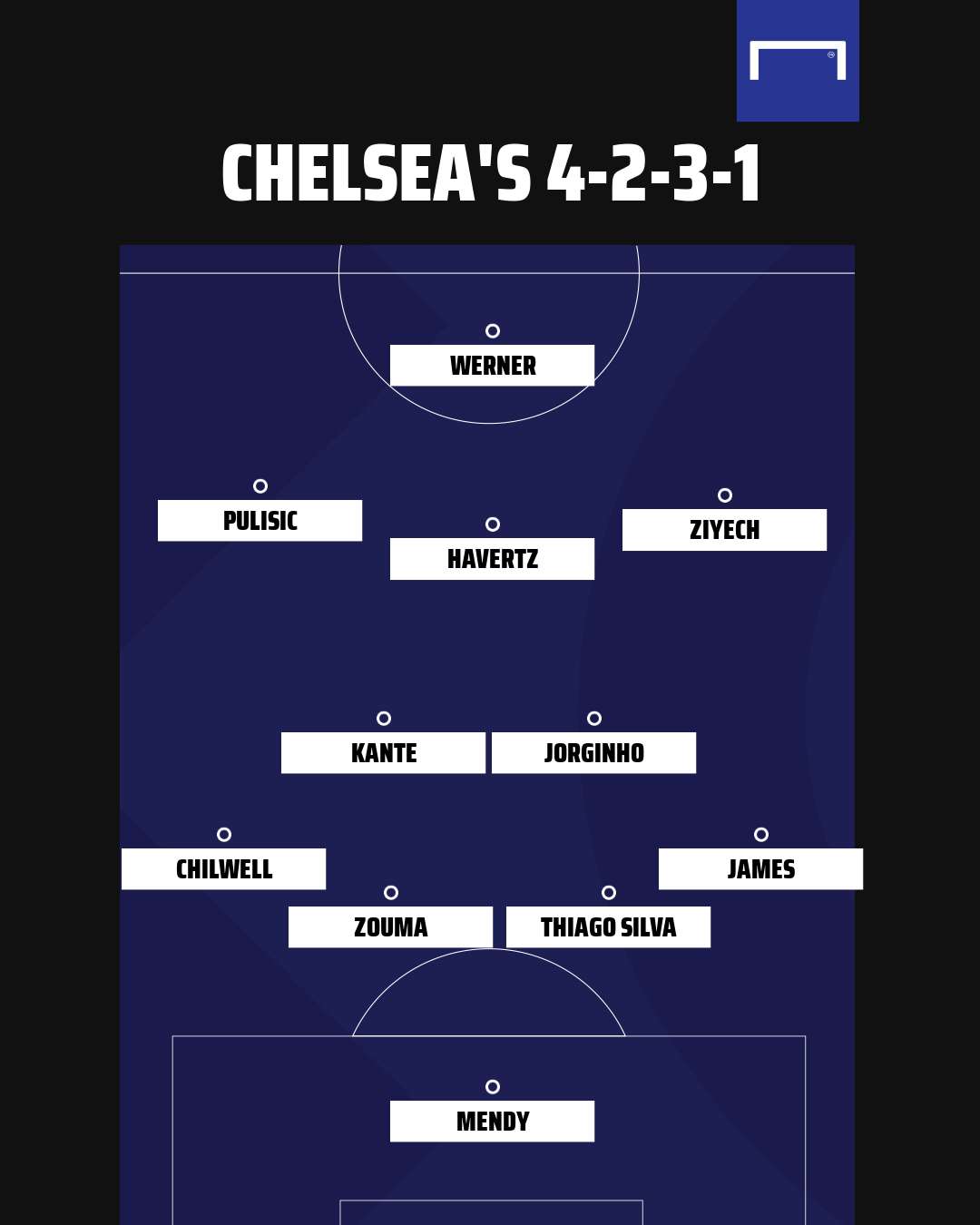 Goal
Goal
Chelsea's version of 4-2-3-1 is not a massive departure from their preferred 4-3-3 and, at times, Lampard has been known to switch between the two during games.
He has, however, increasingly looked to limit its usage due to his side looking far more suspect in defence when playing this way, most notably when they conceded three times against both Southampton and West Brom in the opening weeks of the campaign.
It does have its advantages, though, and certainly looks the formation most suited to Havertz's talents.
Playing a 4-2-3-1 allows the 21-year-old to play in his favoured No.10 role, though given his performances so far there is no guarantee that he would get into the team ahead of Mount if Lampard were to make such a tactical tweak somewhere down the line.
Regardless, it is unlikely that the Chelsea boss will be reverting to 4-2-3-1 any time soon until he can figure how exactly to ensure his top-heavy squad can play it without his back line being exposed.
Option three: 3-4-3
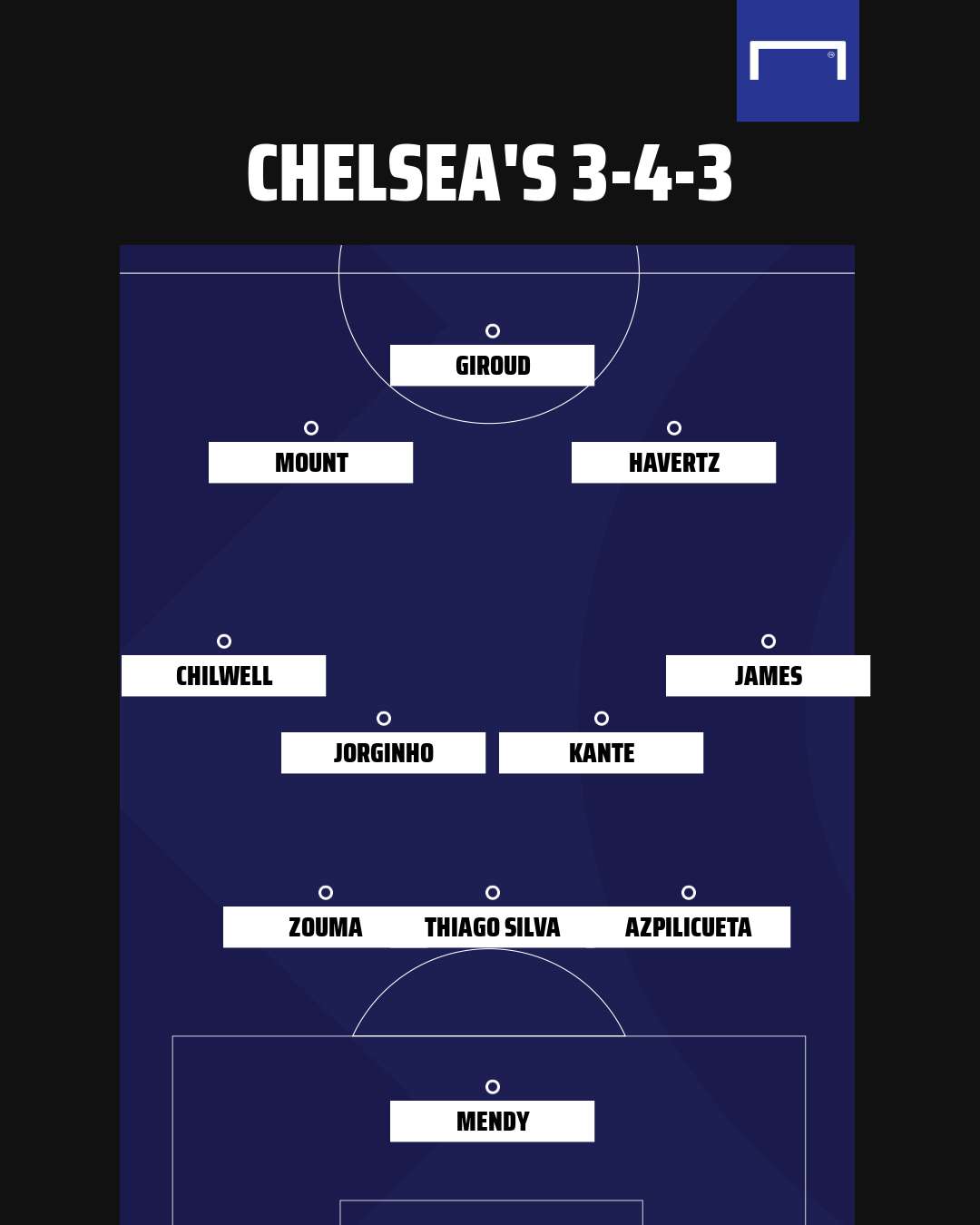 Goal
Goal
Despite having sporadic success using a back-three at times during his Chelsea tenure, Lampard has gradually moved away from using it during the course of the current campaign.
They last deployed the formation during their 0-0 draw with Manchester United back in October, though it did bring them a victory over the Red Devils in last season's FA Cup semi-final as well as two victories over Tottenham in 2019-20.
Club captain Cesar Azpilicueta tends to be the man tasked with becoming the third centre-back when Chelsea do shake up their defence, and it certainly does seem to ensure more solidity in front of Edouard Mendy.
Further forward, however, it is not just Havertz and Werner who seem to be limited in what they are able to produce when slotted into this system.
The presence of wing-backs forces the wide forwards to play far more centrally, which in turns means that the likes of Pulisic and Ziyech no longer have the space they need so much to create opportunities from the flanks.
Havertz could be a better option given he would find himself closer to the goal than he does in a 4-3-3, but he would still be playing from wider than he probably would like.
Werner, meanwhile, seems totally unsuitable to play as the focal point, with Giroud having previously thrived when Lampard has played 3-4-3.
Conclusion
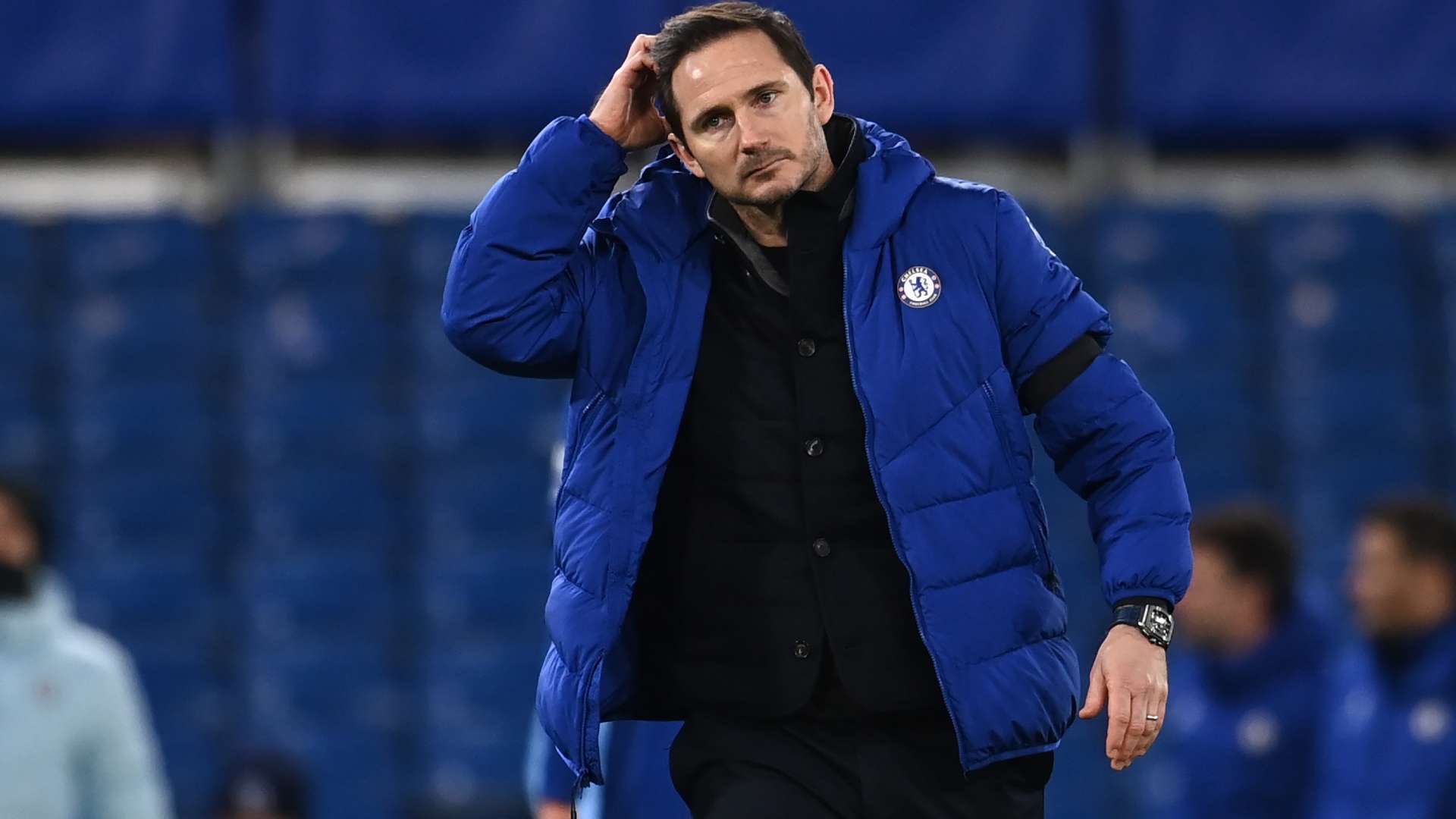 Getty Images
Getty Images
There are, of course, a myriad of other formations at Lampard's disposal, but during his two-and-a-half year managerial career he is yet to show that he is willing to adopt any of them.
Werner thrived as part of a two-man attack at RB Leipzig, but there is clearly a belief that the negatives outweigh the positives of playing in such a way given the strengths of Lampard's squad.
As such, the feeling continues to grow that Werner and Havertz were signed merely because Chelsea could sign them, rather than because they fitted into Lampard's way of thinking.
The ex-Blues midfielder could, of course, mould both players so they are more suited to his favoured formations down the line.
The question remains, though: will he be given the time to do so if results continue as they are?
